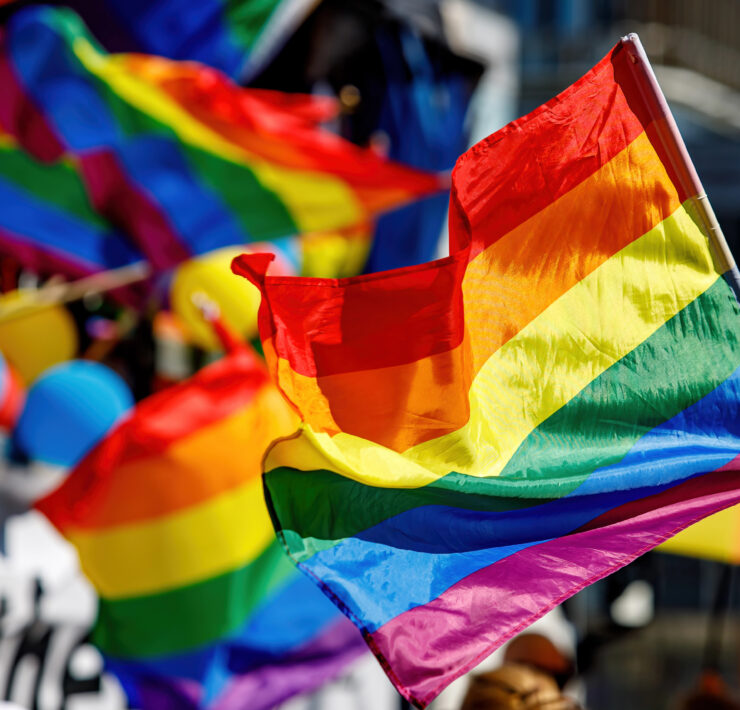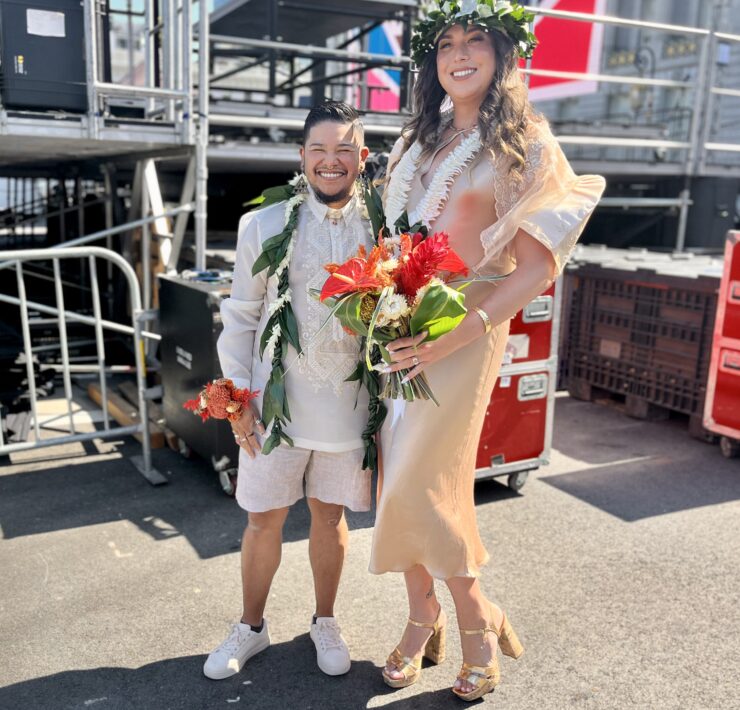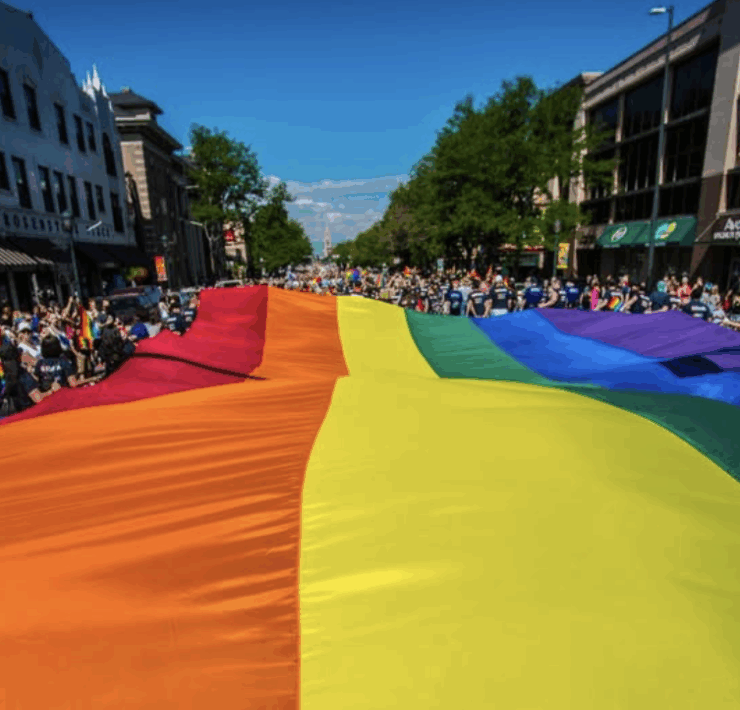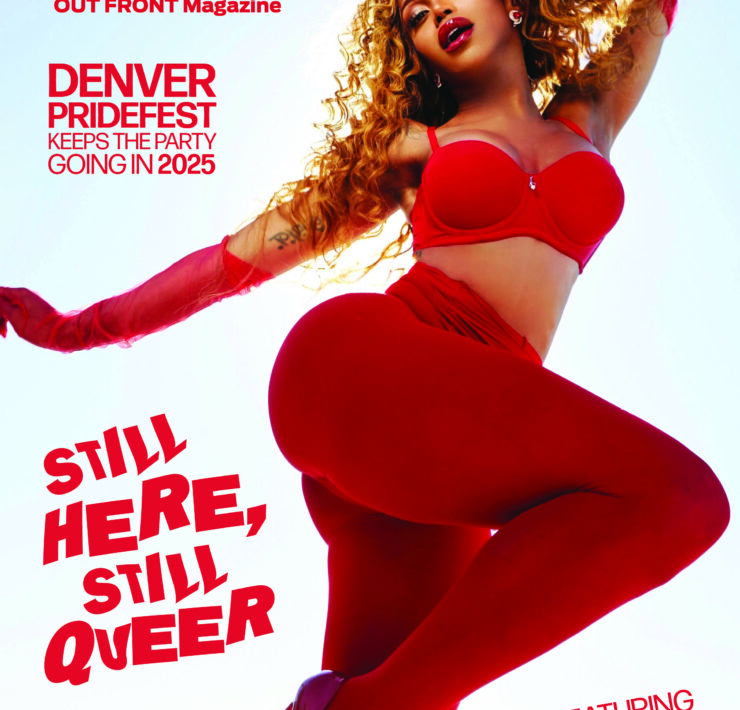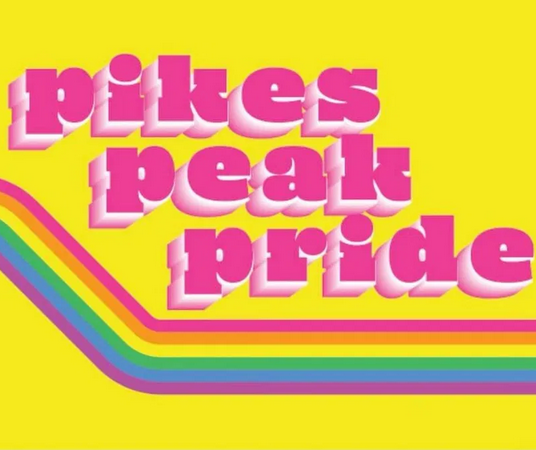‘Fire Island’ is the Perfect Film for Pride Month
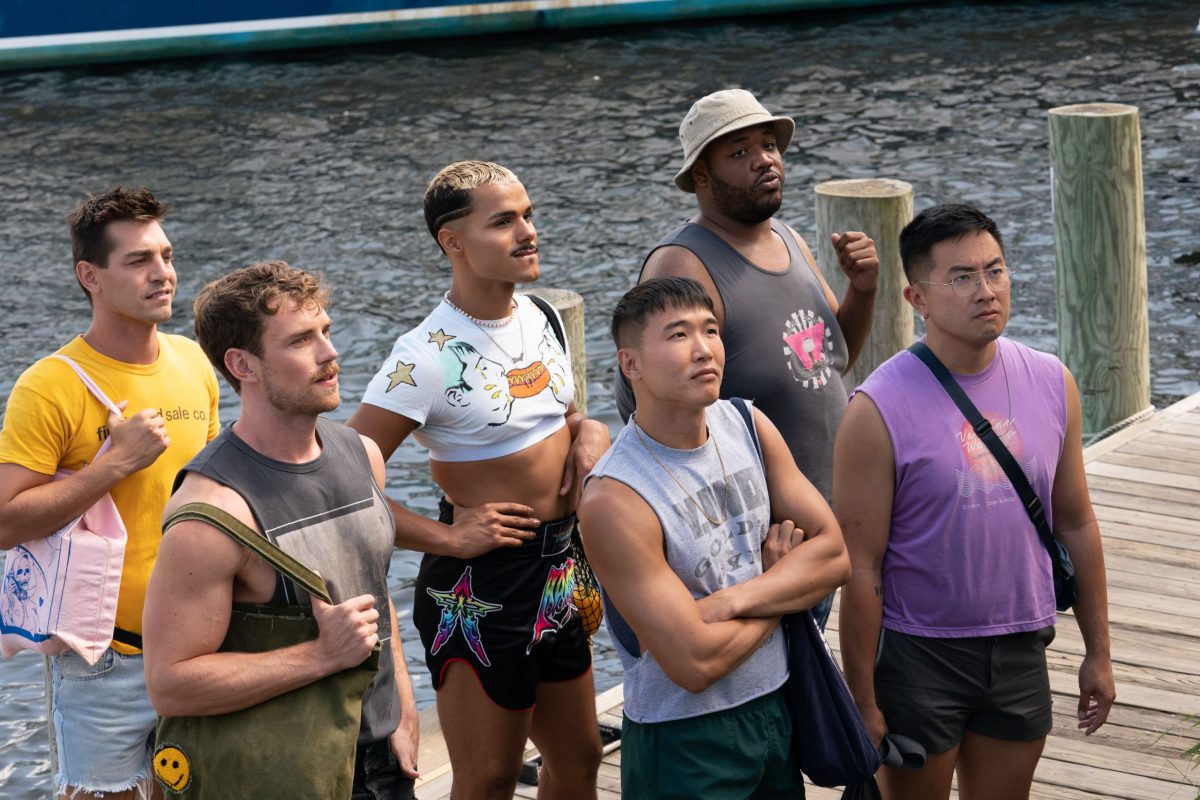
Denny Patterson is a St. Louis-based entertainment and lifestyle journalist…
LGBTQ Pride Month is officially here, and with it comes a slew of films and TV shows that are worth a watch. Fire Island, a modern day rom-com showcasing a diverse, multicultural examination of queerness and romance, is surely one on that list.
Written by Joel Kim Booster and set in the iconic Pines, the film was inspired by the timeless pursuits from Jane Austen’s classic Pride and Prejudice and tells the story of best friends Noah (Booster) and Howie (Bowen Yang) who set out to have a legendary summer adventure with the help of cheap rosé and their cadre of eclectic friends.
According to Booster, the idea for the film came to him while he and Yang were visiting the island for the very first time.
“We were a little apprehensive to go because we knew what the island’s reputation was and who it was supposedly, quote unquote, ‘for,’” he says. “But we had a great opportunity to go, so we took it, and I brought Pride and Prejudice for my beach read. As I was reading the book, I was really struck with how relevant everything she was writing about in regards to class seemed to be. I kept putting it down and saying, ‘Wow, she really understands the ways in which people communicate across class lines.’
“Looking around Fire Island, the divisions that we’ve created for ourselves were so clear. The artificial classes that we’ve created in our community. It’s so stark on Fire Island because when there’s no one around to oppress us, we turn inward and start oppressing each other in various ways. So, the idea started a little bit as a joke, but the story slowly crystallized the more Bowen and I went and the closer we got. It was born out of equal parts Austen and my friendship with Bowen.”
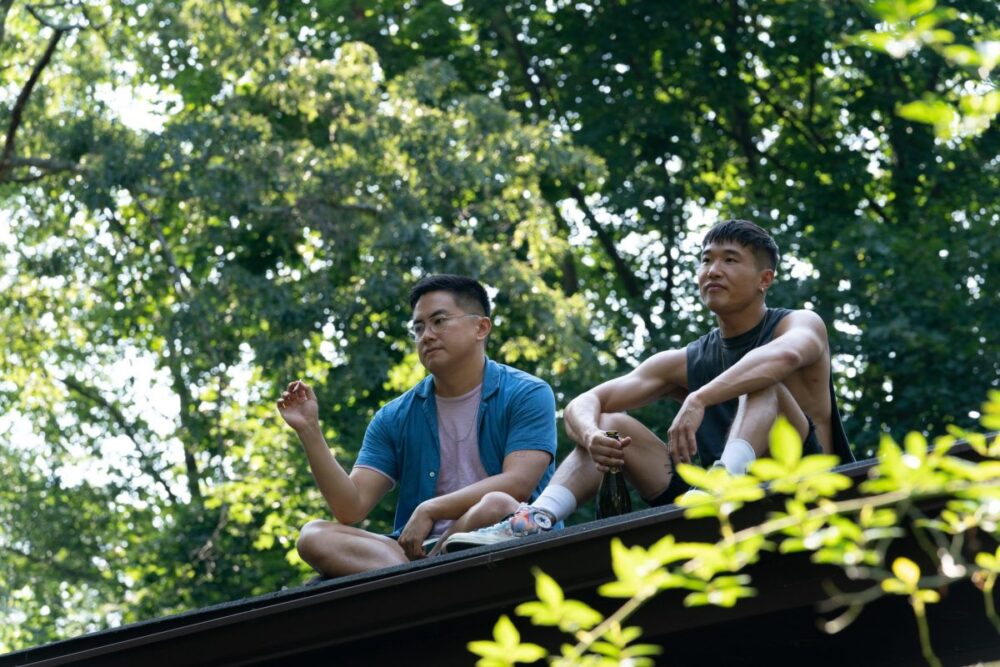
The project was originally set to be a miniseries on the short-form streaming platform Quibi. After its unfortunate demise, Searchlight Pictures was quick to jump at the opportunity and turned Fire Island into a full-length screenplay for Hulu.
Andrew Ahn came onboard as the film’s director, and says he was ecstatic to work with Booster.
“I think there are very few gay, Korean American creatives out there in the industry, and I really loved his point of view,” he explains. “I think we met back in 2016 casually, but when I received the script for Fire Island, we were a year into the pandemic. I hadn’t seen my friends, hung out with them, or gone out to a bar or club to dance, drink, and be stupid, and I saw that in this script. I also loved how the screenplay focused on queer Asian American friendships and queer joy, and these things were missing from my life. So, I wanted to be a part of this film so I could show how important this is.”
Ahn’s other films, Spa Night and Driveways, also highlights Asian talent and stories.
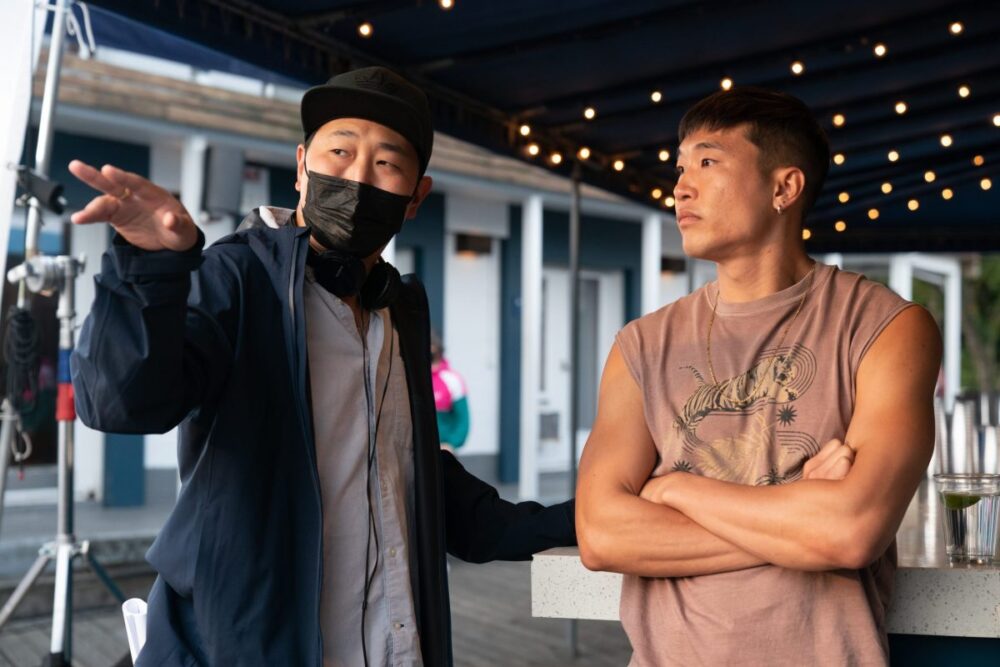
“I understand the value of representation,” he says. “I like to give opportunities to Asian American actors who don’t necessarily get opportunities to be the leads in movies, and I want to show the depth of talent that exists within that community so people in Hollywood can’t say, ‘Oh, there’s no one for that role, so let’s switch it to a white character.’”
Because Fire Island showcases Asian representation and addresses the intersections of race, class, and dating, the film is being hailed as “groundbreaking” and “necessary” by critics and anticipated viewers.
However, Booster wants to make it clear that he did not set out to make something revolutionary.
“People have been saying this ever since the movie got announced and they learned Bowen and I were going to be in it,” he says. “It’s a lot of pressure, and it does at times feel like there’s a bit of a target on my back. We take it seriously, and I take the responsibility of it very seriously, but we did not set out to make a movie that was about some universal gay experience. We set out to tell a story that was very personal to me and Bowen’s friendship. I hope in that specificity, people can find themselves and find the universality and themes of chosen family, friendship, and love, but I really just wanted to make a movie about my friendship with Bowen.”
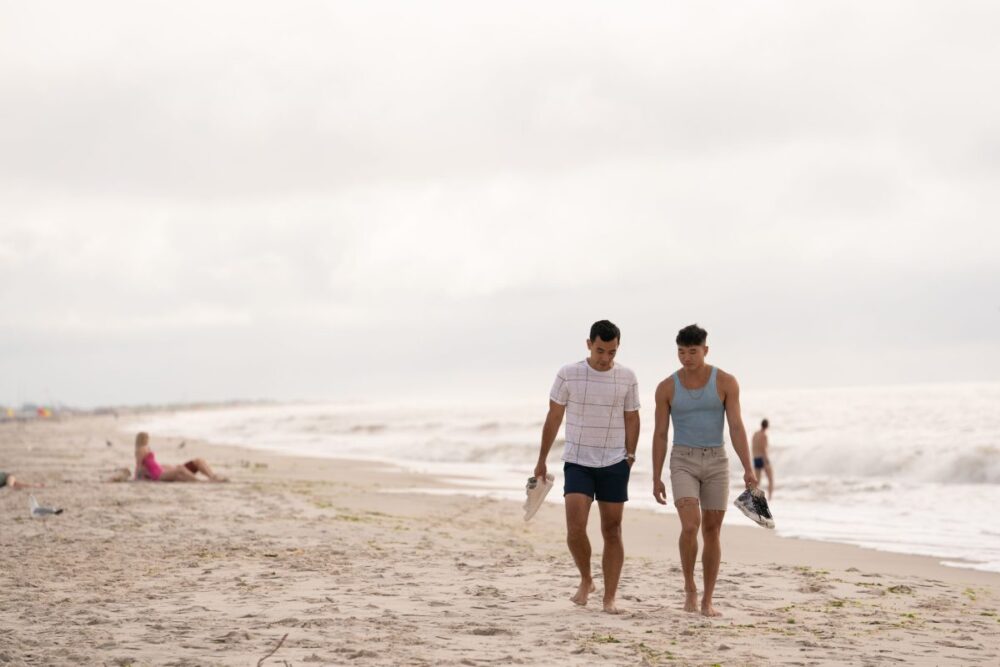
Booster first met Yang not too long after moving to New York City.
“He was a very early friend and one of my first close gay and Asian friends that I made in New York,” he recalls. “Back then, I think people expected us to be a little competitive because we check a lot of the same boxes, but we decided early on that we were going to support each other and prove that even though news outlets might get our pictures confused sometimes, we are very different people and performers. We have a lot to offer individually that is different from one another, and that’s another huge reason why I made this movie. It was an opportunity to act with my best friend. If I waited around for Hollywood to do that, I would be waiting a long time.”
In addition to Booster and Yang, Fire Island also stars Margaret Cho, Conrad Ricamora, James Scully, Matt Rogers, Tomás Matos, Torian Miller, and Nick Adams, and was shot largely on location.
Commonly referred to as America’s first gay and lesbian town, people representing all facets of the LGBTQ community flock to this haven every summer. Stretching for 32 miles off the coast of Long Island, the island has served for decades as an invaluable place of refuge, offering vacationers a chance to build camaraderie away from the pressures of conforming to outside societal expectations.
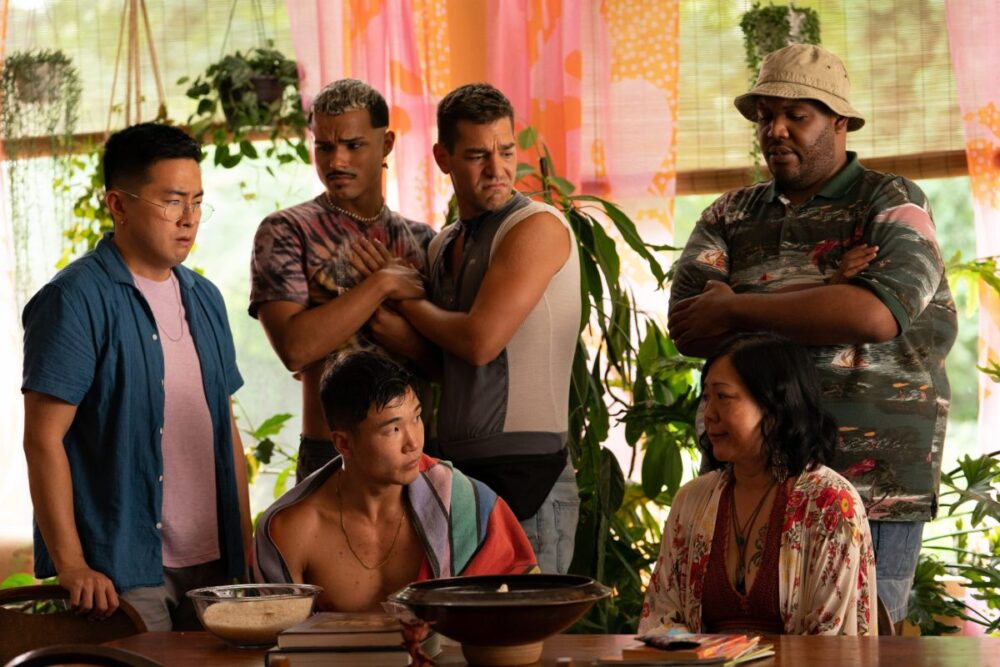
“I have never been to Fire Island before pre-production on this movie,” Ahn admits. “I have been other gay destinations like Palm Springs, so I understood the kind of experience, but the specificity of Fire Island and its history, that was something I really had to absorb during prep. I went to the island as much as I could. My cinematographer, Felipe Vara de Ray, and I went to the underwear party together to check it out, and we ran into Joel just enjoying himself. It was kind of a crash course, and I still came to it as a bit of an outsider, but I think that kind of helped me in some way. The characters in this film can feel like outsiders in this place at times, so I never wanted to pretend that I was an expert.”
Both Booster and Ahn believe every LGBTQ person should experience Fire Island at least once in their lifetime.
“The memories that I’ve made there and the friendships that I’ve forged, that is a huge reason why Fire Island remains an important destination for me,” Booster says. “For a lot of people, it’s the history. Once you step foot on that island, you immediately understand what it means to our community. It’s one-of-a-kind, and there’s no place like it. I think its reputation is earned, but I’m seeing a demographic shift. I’m seeing more queer people, more trans people, and more people of color every year that I go. If we see the island only segmented to a certain part of our community, then we’ve lost something special. Bowen and I made a conscious decision when we first started going. Like, fuck it. If we don’t go because we’re afraid of our community being discriminatory against us, then we’ve lost out on something really beautiful. Fuck that.”
Stay up-to-date and connect with Booster by following him on Twitter and Instagram @ihatejoelkim, while Ahn can be found on Twitter and Instagram @andrewahnfilms. Fire Island is now available to stream on Hulu.
Photos courtesy of Jeong Park/Searchlight Pictures
What's Your Reaction?
Denny Patterson is a St. Louis-based entertainment and lifestyle journalist who serves as OFM's Celebrity Correspondent. Outside of writing, some of his interests include traveling, binge watching TV shows and movies, reading (books and people!), and spending time with his husband and pets. Denny is also the Senior Lifestyle Writer for South Florida's OutClique Magazine and a contributing writer for Instinct Magazine. Connect with him on Instagram: @dennyp777.



